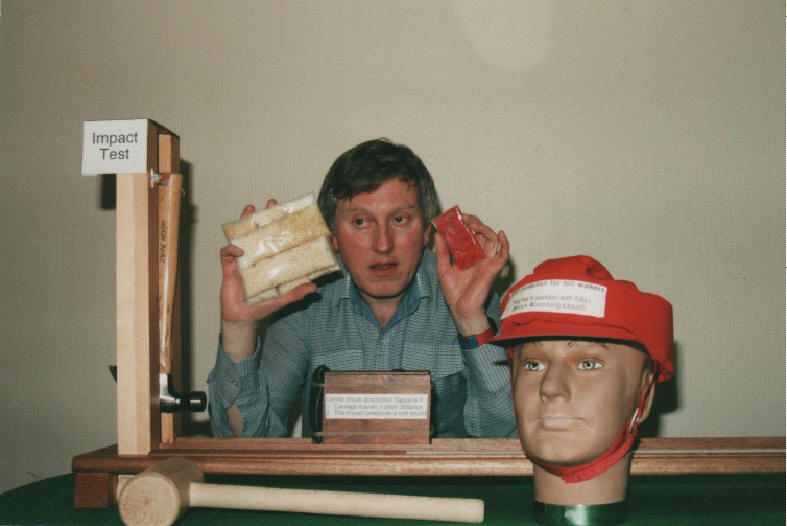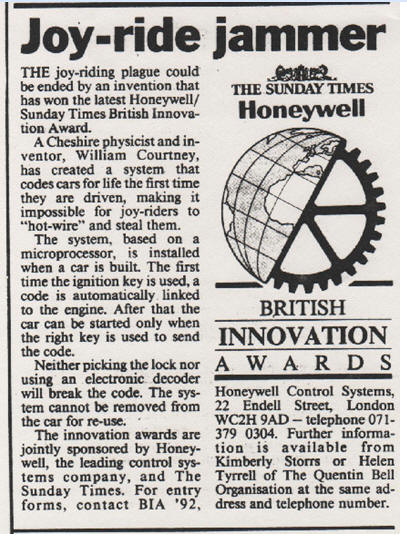His 11+ failire meant that he suffered from what is now known as 'Imposter syndrome' while studying Applied Physics at Hull University (1964-68).
As a result, his suggestions to tutors and fellow students that the textbooks were wrong and that power generators could be designed more efficiently were easily crushed.
But maybe he will have the last word on power generator design, because half a century later he is working with a Hull University Professor (among others), developing his 1960's theories.
He started work as a physics teacher in 1969. From 1971 he taught in a further education college where the work was particularly rewarding because of the broad ethnic and gender mix of his students.
Throughout the 1980’s it became progressively more difficult to recruit physics students as Britain’s industrial base declined.
His serious interest in inventing grew out of a desire to inspire young people to take up careers in applied science and help rebuild a manufacturing base in the UK.
Since 1996 he has worked with about a dozen UK universities and several students have gained PhDs or Master's degrees researching his inventions. Many more have carried out final year undergraduate projects into his inventions.
That old 1960's battle
As an undergraduate student he recognised that engineers were missing a trick about thermodynamics well known to meteorologists.
Tropical hurricanes are born at ocean surface temperatures of around 28oC, which is just slightly cool for a baby's bath water. Yet they are incredibly energy efficient. In contrast, engineers design their power station steam turbines to operate at about 600oC. But in spite of this, they are less than 50% efficient. Bill argued, 'If nature can run massively destructive power generators (hurricanes) at low temperatures, why can't we humans do something similar to generate cheap electricity?'
In 2009 he obtained funding to test his 1960's ideas at Lancaster University. But, as he explained in a submission to The House of Commons Science and Technology Committee ( March 2017), bad behaviour by the research assistant and a subsequent cover-up meant that the supporting evidence was never published in an academic journal.
This unethical behavior has probably caused a delay of about four years. In spite of this he pushed on, winning further funding to build a Latent Power Turbine based on the ideas he developed during his struggles with Lancaster University. Initial research results are in line with predictions but he lacks the specialist turbine design skills required to make the final commercial breakthrough.
Two attempts to generate funds for power generator research using Bill's other inventions
.
(i) Shock Absorbing Liquid, SALi
Bill figured out the key principles behind SALi Technology in 1986 when he suffered various vibration and impact injuries as a result of cycling off-road from Lands End to John O'Groats.
Yes, yes, of course cycling over other people's private land is illegal. But he figured that there was a short window of opportunity to get away with it before mountain bikes became common and trespassing on them became a nusisance.

His home experiments on SALi produced very encouraging results. So after saving up for ten years he gave up his teaching job to work full time on SALi Technology.
(ii) The Joy Ride Jammer
In the late 1980's, “Joy-riding” was a common form of crime in Britain. It was easy to break into vehicles and start them without car keys, simply by ripping out the ignition key wires and twisting or “hotwiring” them together.
Bill's response was to take an Open University electronics course and then invent an electronic device to prevent hotwiring. He was ahead of the game and won a Sunday Times/Honeywell Innovation Award.
In spite of media coverage and considerable marketing support from The Quentin Bell Organisation, vehicle manufacturers failed to take up the idea, claiming that their customers were not interested in paying for motor vehicle security.
Bill was saving up at the time, with the intention of developing his SALi Technology. He thought that SALi was the safer bet. So he decided to abandon his costly patent protection for the “Joy-ride jammer”.
He lost
The year after Bill abandoned his patent protection the automobile industry woke up to the importance of motor vehicle security.
This type of device is now a standard feature on all new cars. They are marketed as “immobilisers.”

Two invites:
(i) Bill and others, including a Professor at Hull University are currently writing a paper on the Latent Power Turbine theory. If you have a friendly professional interest, please ask for a draft copy.
(ii) LP Turbines are too big a business opportunity for a small company to handle. We need to work with a far larger engineering company who will eventually buy us out. Please contact us if you are interested.
How bad is bad?,
On this page, Bill has hinted about misbehaviour by a tiny number of personnel at two British Universities. As a patriotic British scientist, he does not condone this and is determined to play his part in stamping it out. But on the whole his experiences have been good. He is delighted and proud to be working with his alma mater, Hull University, after a 50 year time gap.
